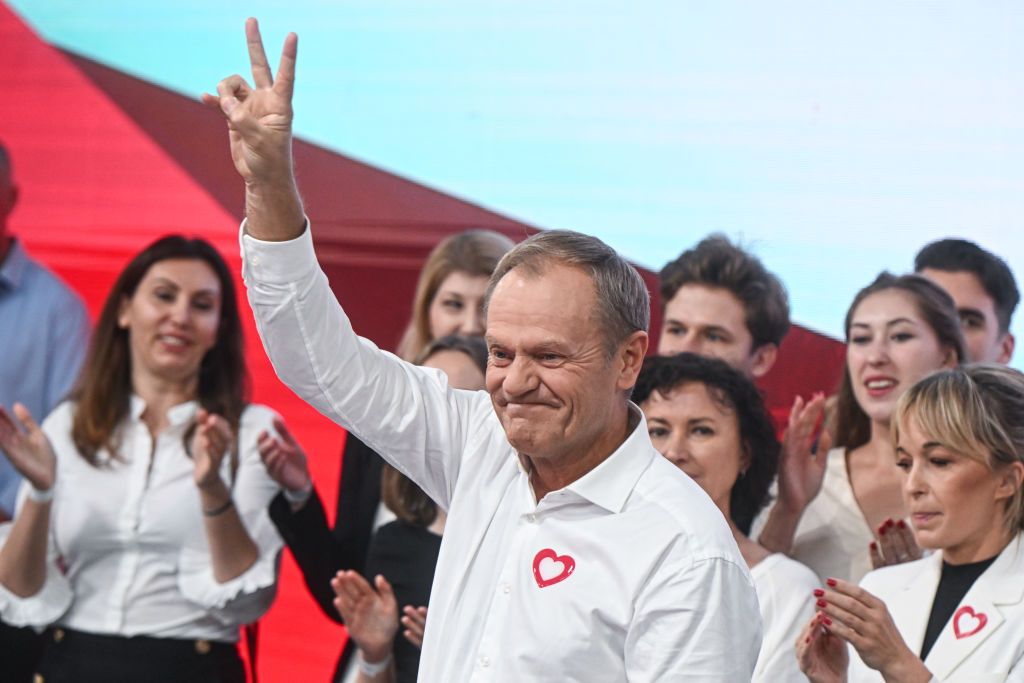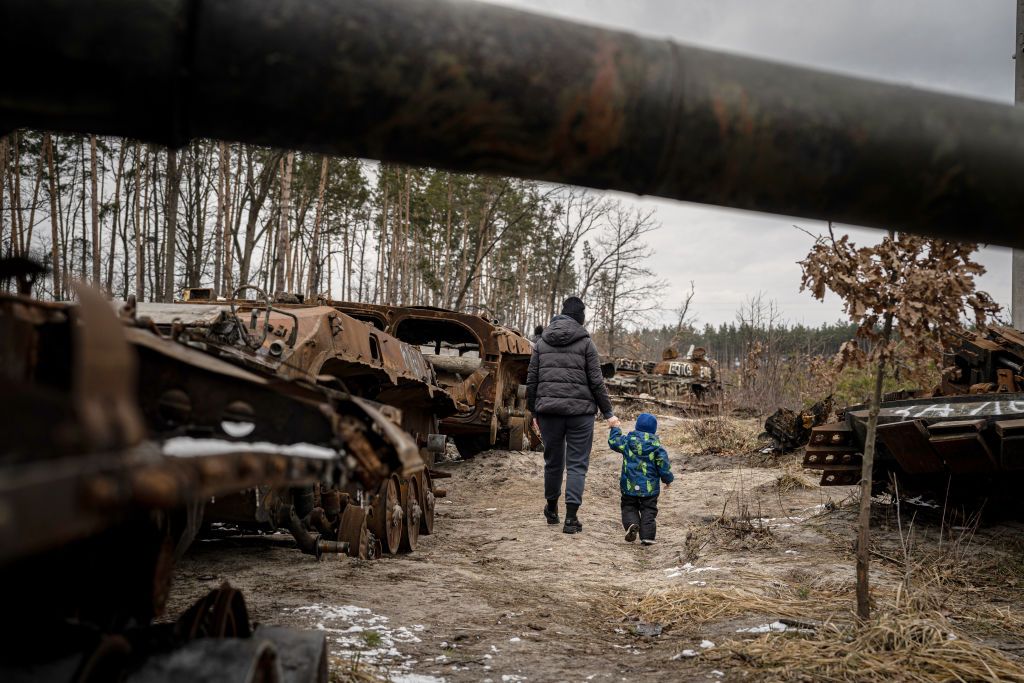STOCKHOLM – In his annual press conference, Russian leader Vladimir Putin made it clear that he will be ready for a peace settlement with Ukraine only after he has achieved his goals, which have not changed since he launched his full-scale invasion on Feb. 24, 2022. He wants Ukraine to be demilitarized, meaning subjected to Russian military and security control of its territory; and he wants “denazification,” meaning Ukraine would be put under Russian political control. In other words, Russia would absorb Ukraine so that the latter ceases to exist as an independent nation-state.
Time and again, Putin has declared that there is no historical justification for Ukraine, since it comprises territories that were long held by the Russian Empire. But something similar can be said of countries across Europe today. Many previously fell under the yoke of the Ottoman, Austro-Hungarian, Wilhelmine, or Russian empires. And globally, the vast majority of the 193 countries that make up the United Nations became independent only in the aftermath of World War II. In the historical period that preoccupies Putin, many of today’s countries did not exist even in people’s imaginations.
The problem, for Putin, is that the age of empires is long gone. He stubbornly refuses to accept that we now live in the age of nation-states, with an international order organized around the UN Charter’s principle of territorial integrity, which prohibits any redrawing of national borders by force. Instead, he fantasizes about recreating the Russian Empire by swallowing up Ukraine and Belarus (followed, perhaps, by many other neighboring countries).

When Putin launched his war of conquest, he obviously expected Ukraine to fold quickly. Ukrainian President Volodymyr Zelensky was to be dispensed with, and a Russian puppet government was to be installed within the space of a few weeks.
But that plan failed spectacularly. Ukraine’s population – especially its armed forces – refused to bow down to the wannabe Czar. Instead, Ukrainians united in fierce resistance, preserving control of their capital and then gradually taking back around half of the territory that Russia’s forces had initially occupied. Relying on missiles and drones, Ukraine has effectively put Russia’s Black Sea fleet out of action, and its air defenses have succeeded in creating a virtual no-fly zone over the country.
While Western financial support and military supplies have undoubtedly been critical to Ukraine’s defense, what matters most are the Ukrainian people’s high morale and determination to defend their country. With Russia holding a presidential election in March, Putin needs to make a credible argument that victory in his war is not a pipe dream. He has put Russia’s economy on a war footing, mobilized 400,000 men, cranked up the Kremlin’s propaganda machine, and taken repression of dissent to new post-Soviet heights.
But none of that will win him the war. His heavily battered army seems incapable of making any meaningful advances against Ukrainian defensive lines. His only hope is that the Ukrainian people’s determination to resist will waver, and that “war fatigue” will continue to build in Europe and the United States. Once the Western financial and military support has dried up, Ukrainian morale will evaporate, and his forces will be able to advance, imprisoning, deporting, or simply executing anyone who still resists.

Yet if Putin thinks this scenario would bring peace, he is gravely mistaken. His advancing armies already committed mass atrocities in the initial invasion, and they would do so again. But these horrors would galvanize political will in the rest of Europe, as would the flood of millions more Ukrainian refugees westward. Though European governments’ responses are difficult to predict, they most certainly would not be aimed at securing peace with Russia. Far more likely is an even wider and more prolonged conflict, where the outcome would ultimately be decided by Europe’s economic and industrial strength, irrespective of changing US attitudes.
In short, there simply is no way for Putin to win the war that he started. Peace will come only when he is defeated – only when the Ukrainians (with Western help) have succeeded in defending themselves, and when Russians see that Putin’s insane war has jeopardized their own future.
It is impossible to predict when this will happen. For now, Putin seems satisfied that he hasn’t been militarily defeated yet. He is trying to exude confidence in his war effort, even though it is nowhere close to achieving any of his stated goals. But this performance can last only so long. Sooner or later, the grim reality of what he has done to Russia will become impossible to hide.
One day, when Russia finally abandons Putin’s neo-imperial illusion, it will start to focus on its own future as an independent nation-state among independent nation-states, including Ukraine and Belarus. Only then will it be possible to talk about peace.
Editor’s Note: Copyright, Project Syndicate. This article was published by Project Syndicate on Dec. 19, 2023, and has been republished by the Kyiv Independent with permission.The opinions expressed in the op-ed section are those of the authors and do not purport to reflect the views of the Kyiv Independent.













